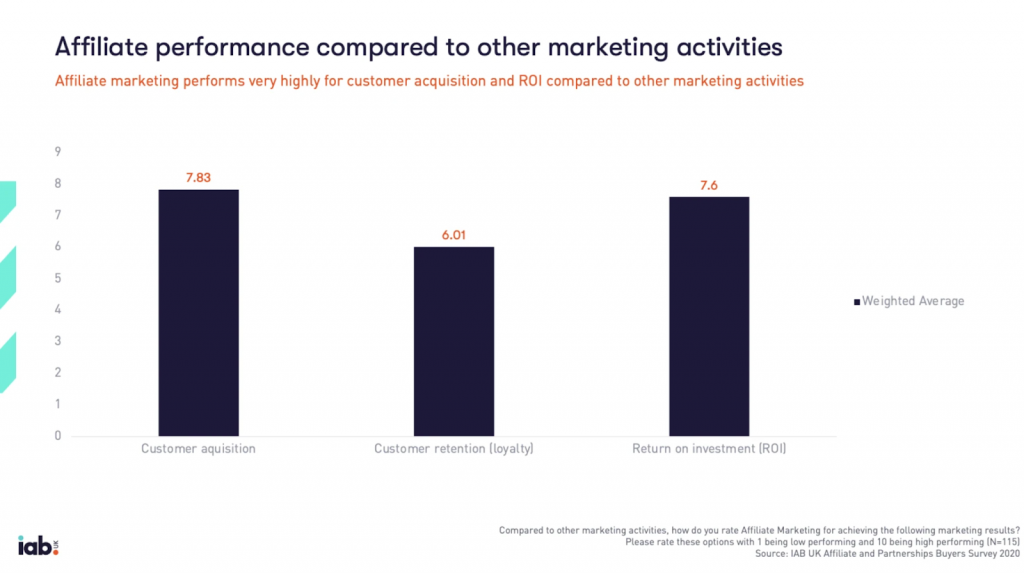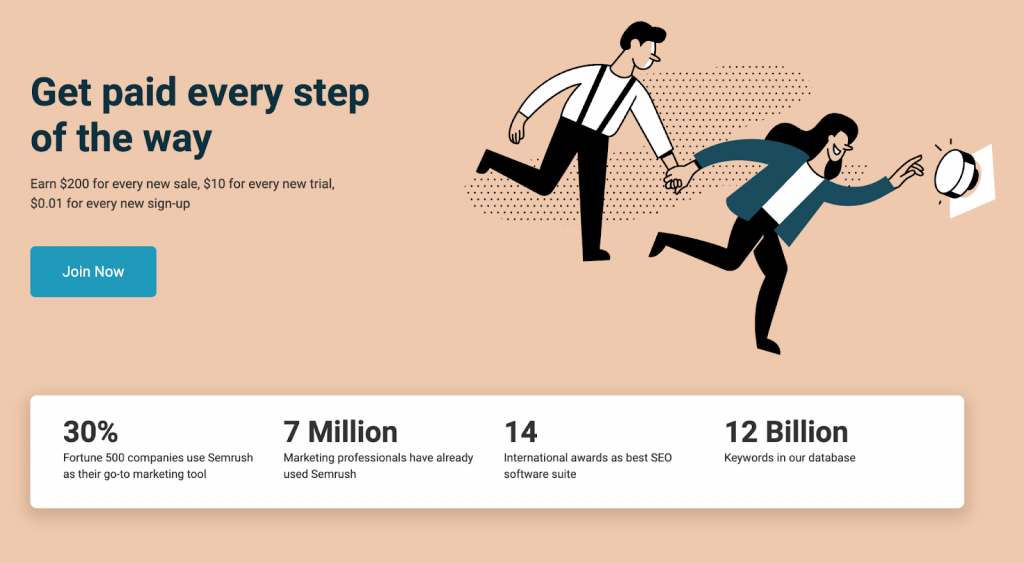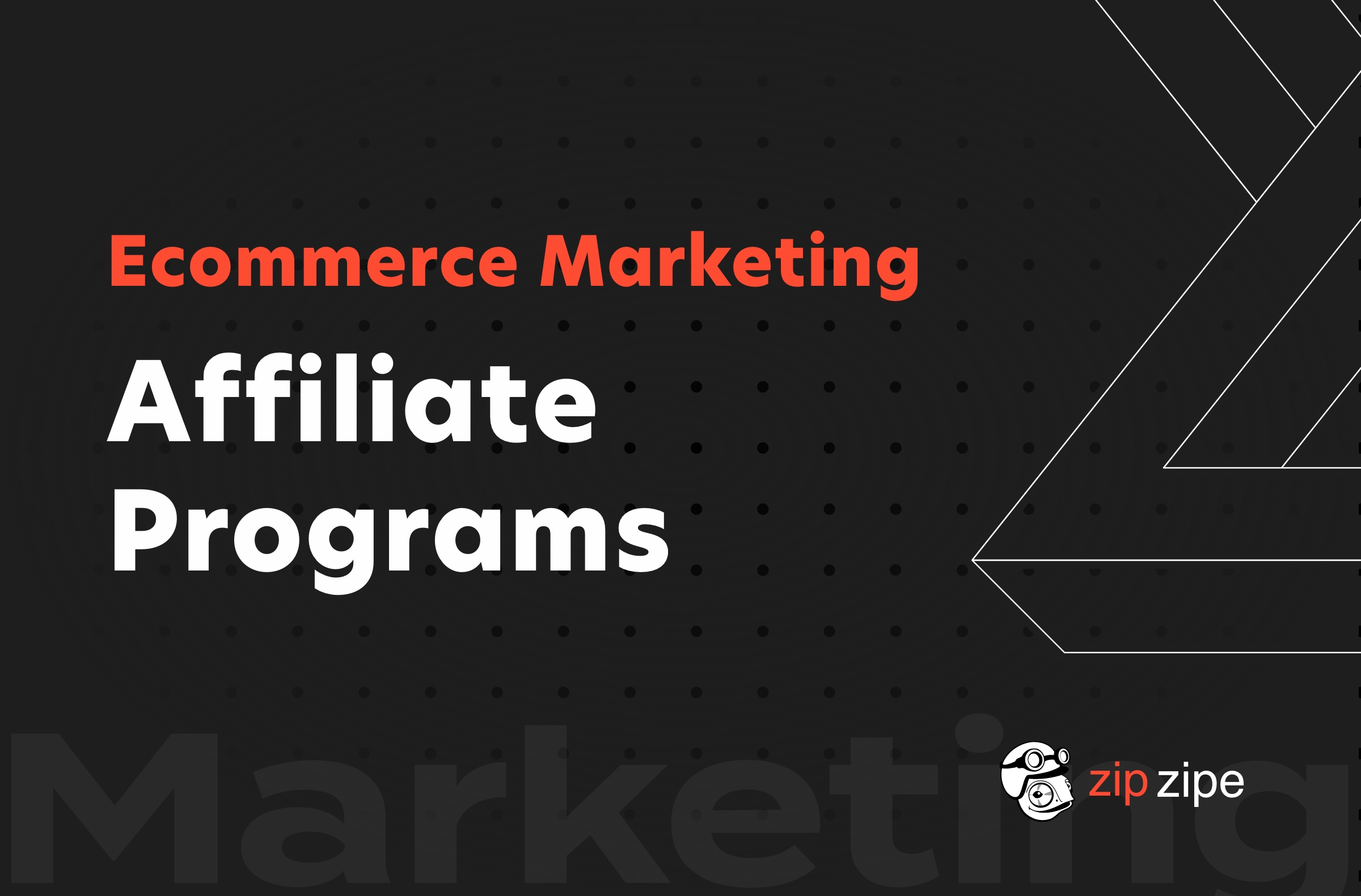Affiliate marketing is booming. More and more people are trying their hand at becoming affiliate marketers, and in response, businesses are creating unique affiliate programs in the hope of growing their brand and business. A report by Awin summarised it best: ‘with the decline of traditional advertising and the rise of social media, affiliate marketing is rapidly rising as a must-have skill’. But even with its booming popularity, is affiliate marketing worth it for your business?
Unfortunately you can’t ask that without even more questions popping up.
What are the benefits of starting your own program? Is it difficult to create one? Are there any risks? Can I see some examples?
This article will answer all those questions. It’ll also ultimately help you decide if affiliate marketing is worth it for your business! Let’s get right into it!
What is affiliate marketing?
Affiliate marketing is a rewards-based system that involves having third-party partners promoting your products or services in exchange for a monetary commission.
This ‘third-party partner’ can be previous customers, a social media influencer or an industry authority. Either way, these partners sign up for an affiliate program that you as a business have created.
“But isn’t that just referral marketing?”
Not exactly.
The difference between referral and affiliate marketing
While both strategies involve the power of word-of-mouth, referral marketing relies on your existing customer base to spread and promote your business to family and friends in exchange for a variety of rewards (such as coupons, purchase credits etc.)
Referral marketing has a bigger emphasis on personal relationships built on trust, reputation and previous experiences with your brand. Word of mouth is usually done based on the goodwill your brand has gained with your customers, with the rewards acting as extra incentive.
Affiliate marketing on the other hand focuses on third-party ambassadors and advocates who are paid a flat fee to send customers to your store. It’s a form of performance-based marketing where the commission is the main reason for these advocates to promote your brand.
Affiliate marketing also places greater emphasis on picking the right advocate. Because customers do not personally know your affiliate partners, it is important to choose a partner that is capable of reaching and promoting to your target audience.
In most cases, affiliates are given a unique link to share with their audiences. These links have their clicks tracked and have a limited lifespan or a ‘cookie life’. The cookie life determines how long the link is viable for.

Most affiliate programs will give partners a link to share on their platforms like YouTube. Source: JOLLY
For example, a link with a 30 day cookie life will track all activity for 30 days once clicked. Referrals need to make a purchase within that time for it to count as a successful referral.
What are the benefits of affiliate programs?
If you’re asking yourself ‘is affiliate marketing worth it?’, learning about what it can do for your business might help you answer that question.
Creating an affiliate program for your business can have many benefits. Its ability to attract new leads, retain existing customers and generate large amounts of ROI makes it a strategy that is at the very least, worth considering.
In fact, affiliate programs have been shown to perform better than many other marketing strategies. This is especially true in terms of customer acquisition and ROI.

Here are some additional benefits a strong affiliate program can bring.
Low start-up and ongoing costs
Affiliate marketing is a great way to market your products and services at little cost. Because the bulk of the marketing and advertising will be done by your affiliate partners, you can save both time and money. And as we all know, those are two incredibly valuable resources in the world of business! The only time you’ll be paying money is when your affiliates bring in new customers, a cost that is well worth it.
Better targeting
A strong affiliate program gives you greater control over the customers you target. You can make sure that it’s the right type of people coming to your store. And by ‘the right type’ we mean customers that are more likely to make a purchase! How? Much like influencer marketing, when you choose which affiliates to work with, you also choose their audience to market to. So when you pick an affiliate that resonates with your brand, you gain access to a whole audience who share that same resonance.
4 great affiliate program examples
Want to see affiliate marketing in action? Check out these 5 examples of effective affiliate programs!
ExpressVPN
ExpressVPN has one of the biggest affiliate programs in the world. You’ve probably seen one of their affiliates market their VPN service at one point or another, whether it be on a YouTube video or on a podcast. ExpressVPN’s program works because it purposely targets a large audience on a platform where their service is incredibly useful – the Internet.

They also claim to have the best commission rates in the VPN industry, making them attractive to potential advocates and partners.
BeRush
If you’re a digital marketer, chances are you’ve heard of SEO toolkit company, SEMRush. BeRush is their affiliate program which pays partners for getting sign-ups to their service. Apart from their high commissions ($200 for every subscription sale!), they also provide affiliates with advertising material for them to use. This makes them more enticing to affiliates.

Skillshare
Skillshare is an online learning platform which features thousands of unique classes that cover a wide range of topics like cooking and video editing. They also have an affiliate program which pays affiliates a flat fee for referring new customers to the platform. Skillshare gives affiliates a unique link which they can share on a litany of platforms such as Facebook and Instagram, which maximises their reach. Did we mention that signing up to be an affiliate was free?

Sendinblue
Sendinblue is an email marketing service provider with a unique affiliate program. Their program is broken up into 3 segments – Expert, Blogger and Starter. Each segment is more catered to a specific type of partner, platform and audience. This segmented approach allows for a more tailored and custom experience for both affiliates and their audiences. This improves brand resonance and encourages more clicks and conversions.

So is affiliate marketing worth it?
Affiliate marketing is an incredibly effective form of marketing – if you and your business can accommodate for it.
Does your business currently experience small profit margins? If so, affiliate marketing might not be viable since you need to pay both your affiliates and ensure you’re making a profit. The commissions you offer to affiliates also need to be worth the partner’s time. Otherwise, you risk wasting your time creating a program that doesn’t attract any affiliates!
But if you have the initial finances available and the manpower to create and monitor a great program, affiliate marketing can take your growing business to even greater heights.
So is affiliate marketing worth it? Definitely – if you’re willing to take extra consideration and pay close attention when creating your program.
Want more ideas to grow your business? Check out the ZipZipe blog and start taking your business to the next level today.




